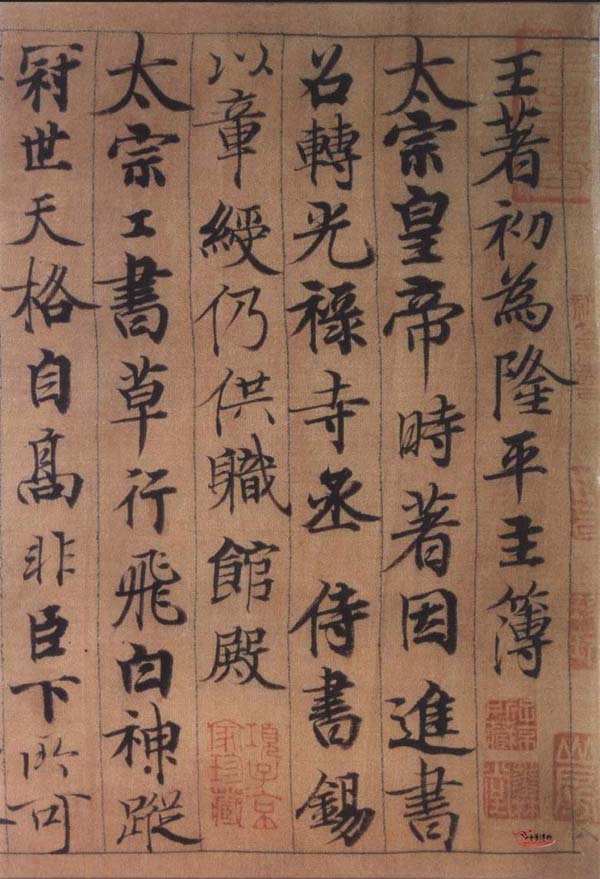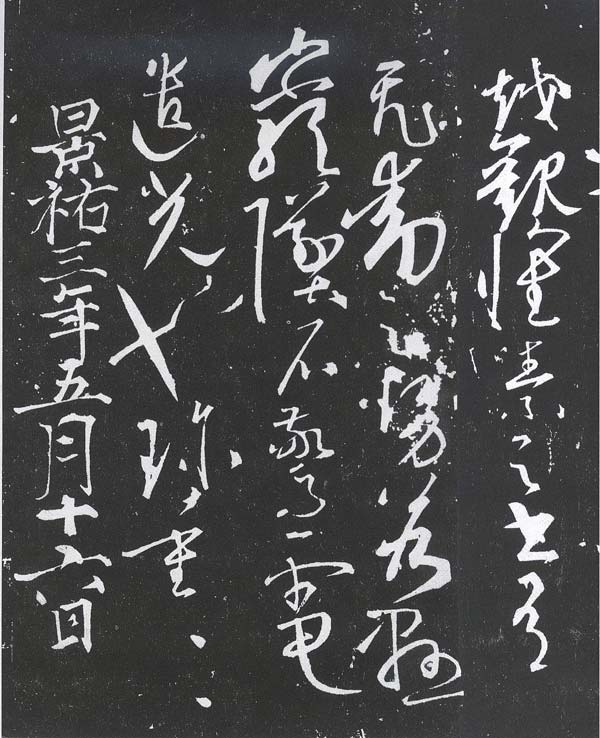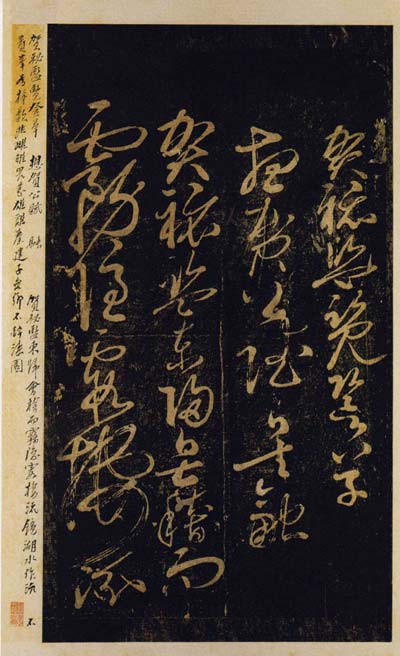Zhou Yue, courtesy name Zifa, was born in Zouping (now Shandong) in the Northern Song Dynasty. He was once an official and a guest doctor. Zhu Changwen's "Mo Chi Bian" commented that "he is proficient in cursive writing, erudite and methodical, but his real performance is not as good as that of a handsome man who is half drunk and has an unruly appearance. Although he cannot speak eloquently, he is excellent if he can." "Xuanhe Shupu" He said: "During the Tiansheng and Qingli periods, calligraphy was used to show the style, and scholars followed it." Huang Tingjian learned calligraphy from him in his early days and said: "The writing is calm and composed, which is the method of the ancients. If the writing style is as charming as Su Zizhan (Shi), it will be I feel that the walking path is so dense that it is not far away from the ancients, and it is much more than just walking alone in today's world."
Zhou Yue in the Song Dynasty is famous because he was the teacher or admirer of the great calligraphers Huang Tingjian, Mi Fu and Su Shi in the Song Dynasty. But the sad thing is that as the three calligraphers became more and more skilled and their horizons grew, they criticized or complained about Zhou Yue. For example, Huang Tingjian said: "I have been studying cursive calligraphy for more than 30 years, and I first took Zhou Yue as my teacher." , so for twenty years, I have kept up my vulgarity." Su Shi said: "Cursive calligraphy is not about learning and entertaining oneself. When you write it, you will be called Zhou Yuenu." It is not difficult to see that one of the key words they criticized Zhou Yue's calligraphy was "vulgarity".
Except for a few engravings of Zhou Yue's calligraphy, the only authentic work currently is the "Thousand Character Essay" written by Wang Wang in cursive script. Because the object and content of the writing determine Zhou Yue's serious attitude towards writing this work, it can be said that it can Represents Zhou Yue’s true level. In this work, the calligrapher's writing skills are relatively deep, but the calligraphy is not consistent and a little rigid, and some strokes are too kitsch, especially the "walking" and "zhi" in his writing, such as "enter", The two words "tracing" and "walking, zhi" obviously have the disadvantage of exaggerating. Despite this, there is no doubt that Zhou Yue is a good calligrapher. At the same time, as Zhou Yue was the link between the early Song Dynasty and the calligraphy world, this only ink mark is even more important.

"Thousand-Character Essay" (part of it) written in cursive script by King Xingkai Postscript of Zhou Yue, ink and color on silk, 138 cm long and 51 cm wide. Collection of Liaoning Provincial Museum
Pictures and texts reproduced from China Museum Network

Zhou Yue's "Huaisu Lü Gong's Postscript"
Explanation: The more I look at Huaisu's book, it has the potential to fly. It is like a rock falling from a hanging rock. It is shocking and sends light. Cherish it. May 16th, the third year of Jingyou's reign.

Zhou Yue's "Cursive Script Congratulations to the Secret Supervisor" (selected from "Yugutai Fa Tie")
Interpretation: Congratulations to the secret supervisor on his visit to the grass, wishing to congratulate the Duke, Fu Rong, congratulations on returning to Kuaiji from the east, while the mist disappears and the clouds settle in the flowing mirror. The lake water is used as a guide, and the stone peak is used as a ladder. He sighs that the pheasants are not afraid of the roosters. Followed by the fish and dragon, taking photos of the waves, running through the waves in the Mid-Autumn Festival, encountering criminals fighting, clouds opening on the moon, seeing a meteor in the middle of the night, standing in the sky at the crossroads of Luyang, the tree swinging in the sky, Lv Bu shot the halberd, fierce and unparalleled, leaving the enemy, only to stop reading. The palace is full of treasures of gold and jade. On the twelfth day of the Mengxia period in the fourth year of the Qing Dynasty, Shangshu Si Luo Yuan Wai Lang Nandu wrote a gift.








